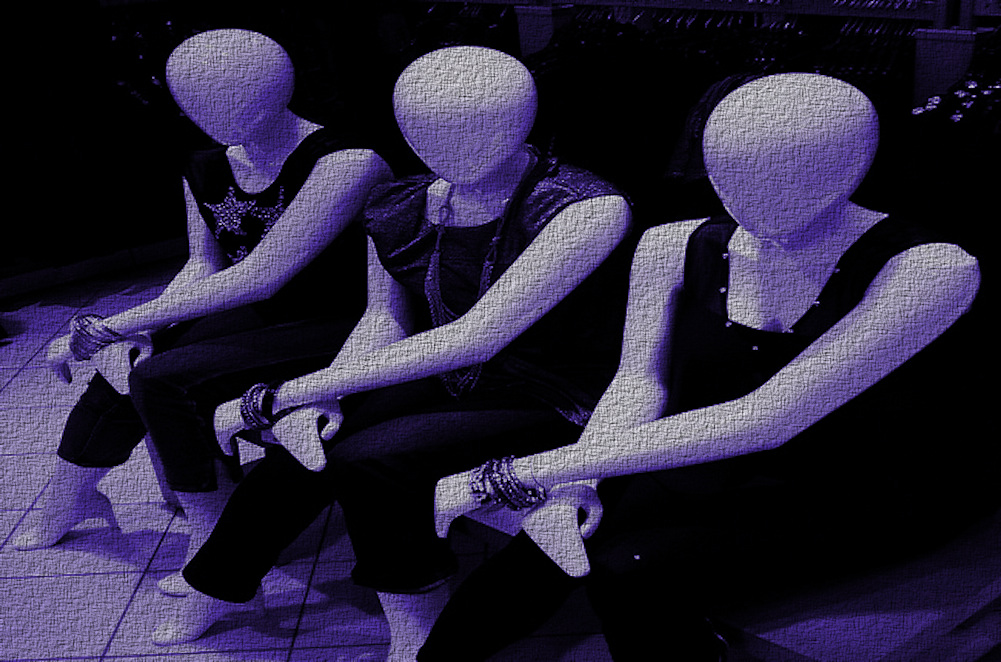Prosopagnosia is a neurological disorder characterized by the inability to recognize faces. Prosopagnosia is also known as face blindness or facial agnosia. The term prosopagnosia comes from the Greek words for “face” and “lack of knowledge.”
Depending upon the degree of impairment, some people with prosopagnosia may only have difficulty recognizing a familiar face; others will be unable to discriminate between unknown faces, while still others may not even be able to distinguish a face as being different from an object.
Some people with the disorder are unable to recognize their own face. Prosopagnosia is not related to memory dysfunction, memory loss, impaired vision, or learning disabilities. Prosopagnosia is thought to be the result of abnormalities, damage, or impairment in the right fusiform gyrus, a fold in the brain that appears to coordinate the neural systems that control facial perception and memory.
Prosopagnosia can result from stroke, traumatic brain injury, or certain neurodegenerative diseases. In some cases it is a congenital disorder, present at birth in the absence of any brain damage. Congenital prosopagnosia appears to run in families, which makes it likely to be the result of a genetic mutation or deletion. Some degree of prosopagnosia is often present in children with autism and Asperger’s syndrome, and may be the cause of their impaired social development.
(Information above is from https://www.ninds.nih.gov/Disorders/All-Disorders/Prosopagnosia-Information-Page)
For a very long time now I’ve wondered if it’s possible to have a ‘mild’ form of prosopagnosia, and also if there was any connection with autism. I’ve not had any traumatic brain injury so I figured my ‘symptoms’ would be congenital or developmental and it just seemed to make sense that it should be associated with my general autistic tendencies.
Face blindness, or prosopagnosia, is a condition that can be acquired through a brain injury, but it is also closely associated with developmental disorders like autism. About 40% of people with autism have prosopagnosia symptoms. (https://www.joinsprouttherapy.com/studio/mood-disorders/autism-and-face-blindness)
I’ve never had any trouble recognising myself or close family members who I see all the time, or even other relatives who I don’t often see but have known from early childhood, or friends I’ve made in recent years and see fairly often. But when it comes to people who I don’t see often at all, or I’ve only recently and briefly met, and they are not in their ‘usual’ place I have some difficulty. For example, neighbours I see in their yard or nearby I can recognise, but if I see them elsewhere (like at the shopping centre) it takes me a while to realise who it is. Sometimes when I see a person I have trouble knowing if that person is who I think it is or if it’s just someone who looks like them, so if they have not seen me looking at them I find it easier to avoid contact, just in case I’m wrong.
Many people with prosopagnosia develop compensatory strategies to help them recognise people, such as recognising a person’s voice, clothing or gait (the way they walk). However, compensatory strategies based on contextual cues don’t always work, and may break down when a person with prosopagnosia meets someone they know in an unexpected location or who’s changed their appearance. (https://patienttalk.org/autism-prosopagnosia-autism-face-blindness/)
I make use of many cues and clues to determine who someone might be, such as their location/surroundings, general body shape, hair colour and style, the dog they’re walking, the car they drive etc, but as explained in the paragraph above, it’s not always successful as many of these things can change.
There have been so many times when someone has said hello to me when out and about and initially I’ve given them a blank look, after which they tell me who they are and an awkward conversation ensues which leaves me feeling embarrassed and like they must think I’m such a rude bitch for not immediately recognising them. I also have trouble remembering names so that just makes things worse.
I wonder too if my sons have the same or similar issues as I remember a few instances when one son in particular would say he saw someone and I would look and be quite certain it wasn’t that person (and as the person got closer he would also realise it wasn’t who he thought it was). Maybe, like me, he sees people who look like other people but aren’t actually them …so confusing! I find socialising in certain situations to be very stressful for a few different reasons (especially my stuttering) and something I’d often rather avoid, and this difficulty I have in recognising some people just makes it all that much more so.

